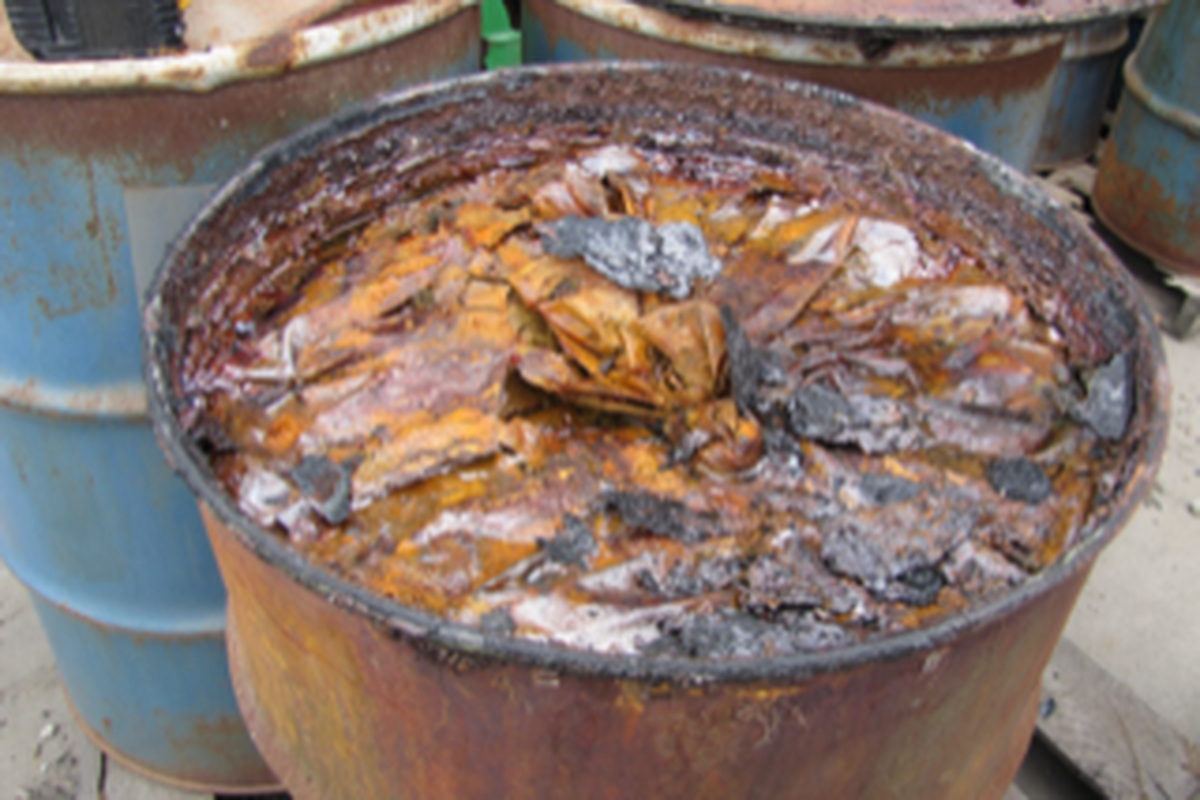Central Washington juice maker charged with 12 federal criminal counts tied to unsanitary conditions, tainted products

The former owner of a juice processing company based in Sunnyside, Washington, has been indicted by a federal grand jury on charges alleging she attempted to hide from federal inspectors products tainted with mold, rot and animal droppings, some of which were later given to schoolchildren.
Mary Ann Bleisner, 80, is named in a 12-count indictment handed down Tuesday against her and her company, Valley Processing. The grand jury alleges for at least seven years the firm had been selling tainted juice products to clientele that included schools participating in the federal government’s free and reduced-price meals program, and that Bleisner made false statements to the Food and Drug Administration when it began to investigate in 2018.
Reached by phone Thursday, Bleisner said she was unaware of the indictment and declined to comment.
Valley Processing had been operating in Washington state since 1980 when, in January 2021, Bleisner signed what’s known as a consent decree, agreeing not to manufacture or sell juice unless certain conditions are met. That followed a civil investigation that unveiled many of the same claims that were contained in the criminal indictment handed down this week. Bleisner informed the Port of Sunnyside Commission in September 2020 that she was selling Valley Processing to Milne Fruit Products, a company based in Prosser, Washington, according to reporting by the Sunnyside Sun newspaper.
Two years prior, according to documents signed by the grand jury, FDA investigators had confronted Bleisner and other Valley Processing officials about claims from confidential sources that juice was being prepared for sale in unsanitary conditions, and that juice products stored outside were being mixed with newer batches and relabeled in violation of federal law.
The company was storing juice products in three buildings in Sunnyside, two of which were not registered with the FDA, according to the indictment. When investigators asked Bleisner if juice products were being stored at a facility on US Grape Road southwest of town, she told them the buildings were unsafe and not housing any juice. Investigators allege Bleisner instructed two workers of the company “to place caution tape in and around the entrance and stairs leading to concrete tanks” that were to be inspected at the unsafe property in May 2018.
During an inspection of one of those tanks, FDA agents observed a tank holding juice concentrate that had developed a thick layer of mold on the top.
That layer was “hard and thick enough for (a live) rat to walk on,” according to the indictment, which included a picture of the rat on top of the tank of juice concentrate. Investigators allege the photo was taken two months after workers at the plant transferred 105,000 pounds of juice into 55-gallon tanks for transport to customers.
The indictment also alleges Valley Processing underreported levels of arsenic and a chemical called patulin, caused by rotting, in batches of apple juice sold by the company. The indictment alleges workers were instructed to blend old batches of juice products with newer ones, and “repastuerize” or “rework” them for sale.
Investigators allege products that were stored in unsanitary locations or that had mislabeled levels of contaminants were sold to customers in Michigan, Kansas, Georgia, Ohio and Louisiana. Batches were also sold internationally to Ontario, Canada; and Chungbuk, South Korea. The indictment also specifically lists products sold to California for distribution to low-income students eligible for free or reduced-price lunches.
The federal charges in the indictment include introducing adulterated food products into the market, failure to register a food facility, making false statements, mail fraud and other conspiracy charges. The maximum penalty for the crimes ranges from three years to up to 20 years in prison, with fines of as much as $250,000. The case has been assigned to U.S. District Court Judge Stanley A. Bastian, who serves as chief of the district of Eastern Washington. No court dates have been scheduled.
The U.S. Attorney’s Office of Eastern Washington asks members of the public concerned about threats to health and the environment to report them to the Environmental Protection Agency, at echo.epa.gov/report-environmental-violations. Eastern Washington residents can also report health and environment concerns to the U.S. Attorney’s Office Civil Rights and Environmental Protection phone line at (509) 835-6306.